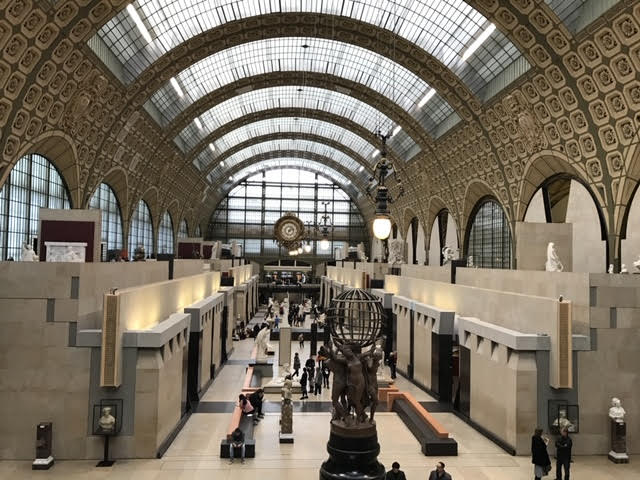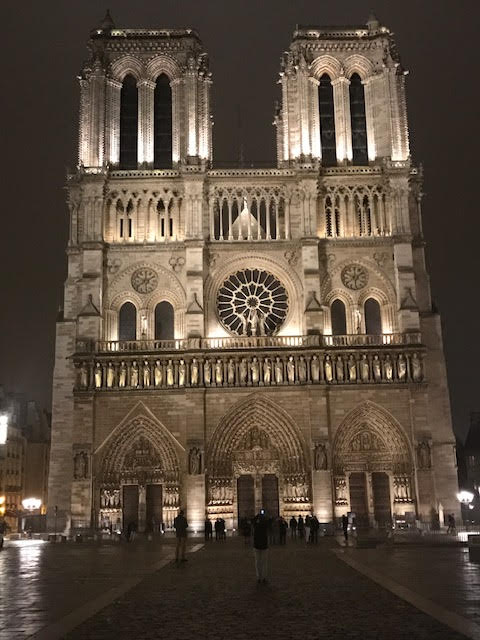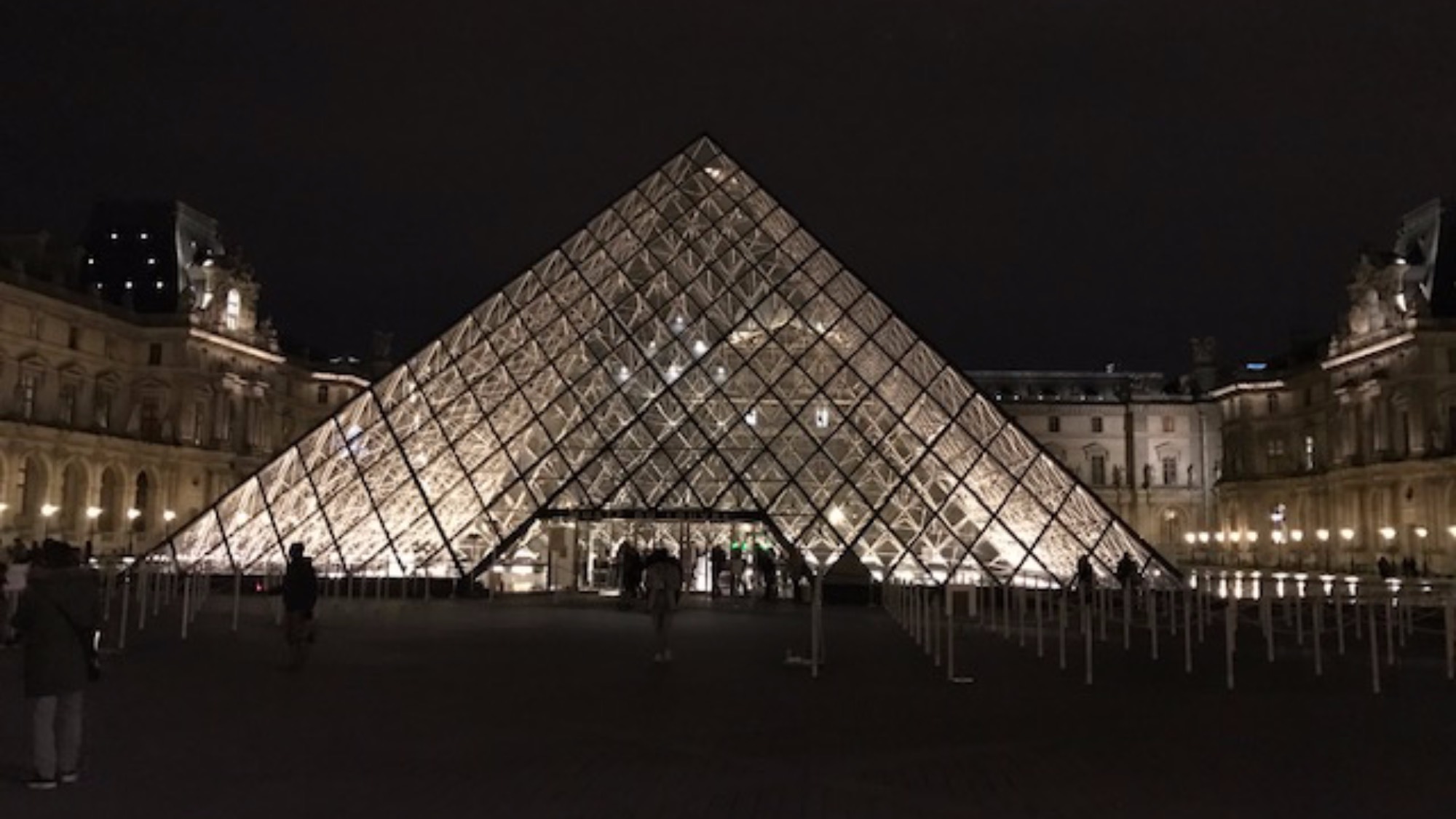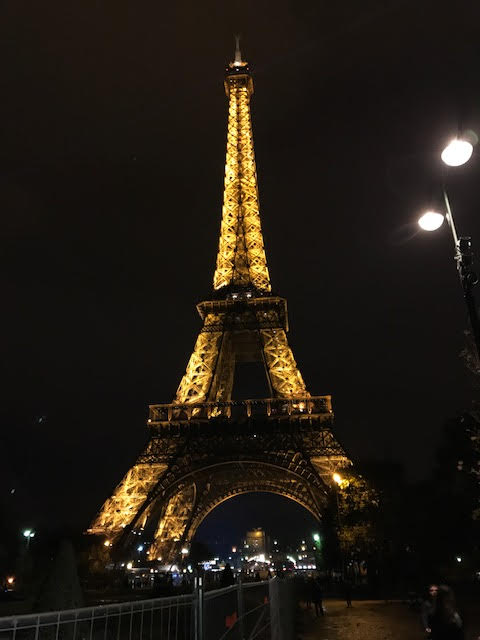This fellowship has been especially designed to provide hand and upper extremity fellows a high-volume and comprehensive experience with a wide range of challenging pathologies, complemented by an emphasis on education and limitless research opportunities. Furthermore, it has been customized to create an experience that emphasizes education and work-life balance. Although there are many unique aspects to this fellowship, some of the elements that stand out include:
- Comprehensive experience in every aspect of hand and upper extremity surgery with leaders in most of the subspecialties of hand and upper extremity surgery: shoulder and elbow, small joint arthroscopy, congenital and spasticity, brachial plexus and peripheral nerve, microsurgical reconstructions, hand and upper extremity trauma, replants, and innovative ultrasound guided procedures and diagnostic maneuvers.
- Exposure to four different practice settings: academic institution, private practice referral center, children’s hospital, and a very busy Level 1 trauma center
- International elective enabling the fellow to spend a month in any of a number of places around the world, including Annecy (Drs. L. LaFosse and T. LaFosse); Hong Kong (Prof PC Ho); London, Ontario (Drs. Athwal, King, and Suh); Lyon (Prof. Herzberg and Burnier); Madrid (Prof Del Pinal); Melbourne (Dr. Ek); Nice (Prof. Boileau); Paris (Drs. Oberlin, Mathoulin, Merlini, Valenti, and Werthel); Queensland (Prof. Bindra); Singapore (Prof Chong); Toronto (Dr. Baltzer); Tokyo (Prof T Nakamura); Wrightington (Drs. Watts, Trail and Ng); and Zurich (Drs. Gerber and Wieser)
- Protected half or full day for research every week with limitless resources and personnel to carry out various types of investigations and weekly research meetings
- A healthy work-life balance in one of the most exciting up-and-coming big cities in the U.S., with plenty of opportunities to take advantage of Emory’s connections with professional teams in Atlanta as well as many of the city’s culture, music, entertainment, food, and outdoor opportunities
Courses
Fellows will undergo a microsurgery, flap, and arthroscopy course the first week of fellowship. The fellows will also attend the ASSH flap course involving lectures and hands-on cadaveric dissections in the fall of their fellowship year. These courses will serve as the foundation for their diverse education around complex soft tissue reconstruction and innovative large and small joint arthroscopy throughout the fellowship year.
In addition to the ASSH meeting, fellows will be able to attend either the AAHS and ASPN, ASPS, or AAOS as well as the ASSH specialty day meetings. At these meetings, they will be encouraged to attend multiple instructional courses that will be financed by Emory. The fellows will also be allowed to attend one additional specialty meeting (e.g. Mayo Wrist Course, San Diego Shoulder Institute, etc.). We also encourage the fellows to participate in many of the industry-sponsored courses throughout the year and provide ample protected time to attend these opportunities.
The fellows will also have a monthly Friday evening dinner/lecture and Saturday morning cadaver lab “course” with experts from around the country that specialize in certain devices or implants. This will allow the fellows to be exposed to many experts on a personal level throughout the year, learning new ways to perform these various techniques.
Call
The fellows will have the opportunity to take call at Atlanta’s busiest Level 1 trauma center, Grady Hospital. There they will gain experience and comfort treating hand and upper extremity trauma with a high level of complexity. The fellows will take one day of call per week and one weekend call per month, allowing for ample education without sacrificing the ever-important work-life balance. Furthermore, fellows are notified of any replantation or revascularization cases on nights they are not on call and are invited to participate at their discretion. On average, our group performs 4-5 revascularizations or replants per month. At the beginning of the fellowship, the fellows will work with each to devise their call schedule, and they will be incorporated into the consultants call schedule as “junior level attendings.”
Microsurgical Reconstruction
Fellows will be exposed to microsurgical reconstructions throughout their fellowship on every rotation. However, they will also have extensive exposure to soft tissue free tissue transfers with Drs. Rob Fang, Bill Knaus, Clifton Meals, and Nicki Zelenski during their time on the Grady rotation at the Level 1 trauma center. All four of these providers perform all soft tissue coverage for the orthopaedic trauma service and subspecialties at Grady. Dr. Zelenski is a world renowned expert in free tissue transfer, brachial plexus reconstruction, and elective microsurgical free bone transport. In addition to working with her on the Grady rotation, the fellows will also work with her Paul Ghareeb, Rob Fang, and Charles Daly on the Emory rotations in their specialty practices focusing on rotational and free tissue transfer for upper and lower extremity elective orthopaedic surgery soft tissue coverage, as well as free functional muscle transfers for brachial plexus reconstructions. Fellows will also work with the other consultants in the trauma setting on replants and revascularizations.
Fellows will learn the reconstruction ladder for soft tissue coverage as well as various types of rotational and free flaps for upper and lower extremity wound coverage. The fellows also will become familiar with the use of intra-operative angiography with the SPY system to assess perfusion. The education starts with microsurgery courses and continues in the clinic and operating room as well as in the microsurgery laboratory with both synthetic and rat anastomoses. The faculty will lead the fellows and residents in various microsurgical anastomoses during monthly dissections throughout the year. The fellows have unlimited access to the microsurgery laboratory and microscopes to practice and further their microsurgery skills. Drs. Nicki Zelenski, Paul Ghareeb, and Charles Daly heads up microsurgery education for the fellows.
Shoulder Surgery
One of the strengths of this program is the extensive experience available for fellows to operate from the scapula/SC joint to the fingertips. Fellows will work closely with Dr. Eric Wagner, the director of upper extremity research, in the treatment of complex open and arthroscopic shoulder and scapula pathologies. Dr. Wagner is an international expert in the fields of complex shoulder arthroscopy, shoulder arthroplasty, arthroscopic brachial plexus neurolysis for neurogenic TOS, treatment of massive irreparable rotator cuff pathologies, and scapular pathologies. He is a member of and holds leadership positions in both the ASSH and ASES after having completed a hand fellowship at Mayo and a shoulder and elbow fellowship at Harvard and in France. Emory is one of the few hand fellowships that can boast a lead faculty representative who is a member in ASES, enabling the fellows themselves to become members in this exclusive organization. Furthermore, the program director, Dr. Michael Gottschalk, also has a practice from the shoulder to the fingertips, treating a wide breadth of shoulder pathologies from fracture to rotator cuff and shoulder arthritis pathology. Drs. Gottschalk and Wagner are two of the busiest shoulder and elbow arthroplasty practices in the Southern U.S.
In addition to this robust orthopaedic shoulder practice, Drs. Wagner, Zelenski, Meals, and Daly work with two neurosurgeons, a MSK radiologist and two neurologists as part of the brachial plexus team in the treatment of the paralytic shoulder. As part of this team, fellows will have the opportunity to participate in multidisciplinary conferences and clinics, as well as perform nerve and tendon transfers around the shoulder and complex shoulder arthroplasties and arthrodesis. Dr. Wagner has helped to pioneer many of these procedures in the treatment of late brachial plexus injuries. Furthermore, fellows will work with Dr. Allan Peljovich in the treatment of obstetric brachial plexus injuries, performing similar types of reconstructions around the shoulder.
Given that these rotations expose the fellows to a wide breadth of pathology and that they will have an opportunity to travel internationally to learn from experts in the fields of shoulder and brachial plexus, this fellowship represents one of the strongest experiences in shoulder surgery and elbow in the country. However, if fellows are not as interested in shoulder pathologies, Drs. Gottschalk, Daly, Zelenski and Wagner also have very busy hand and elbow practices with plenty of exposure to complex pathologies.
Elbow Surgery
In addition to the high volume and wide breadth of exposure to shoulder pathologies, fellows will have very in-depth exposure to the treatment of various elbow pathologies. Dr. Michael Gottschalk has established a reputation as a national expert in the treatment of elbow trauma and advanced elbow arthroscopic techniques. With Dr. Gottschalk, fellows will be exposed to cutting-edge techniques in elbow arthroscopy, fracture reconstruction, total elbow arthroplasty, and ligament reconstruction. Dr. Wagner has a similar breadth in his practice and has become a leader in the field of elbow arthroplasty, as well as tendon transfers around the elbow. Additionally, Dr. Amanda Dempsey and Charles Daly’s practices involves everything from elbow trauma to arthritis. Daly and Meals both work with Dr. Zelenski to specialize in paralytic elbow procedures such as free gracilis for elbow flexion, Steindler flexorplasty, and contracture releases or flexor-pronator slides for spasticity. Finally, during the Grady rotation, fellows will work with Dr. Clifton Meals in the treatment of high-acuity, complex elbow trauma.
With Dr. Allan Peljovich, the fellows will have exposure to the treatment of congenital and pediatric elbow pathologies as well as the treatment of spasticity associated with cerebral palsy, spinal cord injuries, and arthrogryposis. Dr. Peljovich and his colleagues at CHOA and the Shepherd Center are international experts in the treatment of these pathologies.
With Dr. John Seiler and his partners at a tertiary referral private practice group, fellows will have an opportunity to work with one of our field’s leaders in hand and elbow pathology. Dr. Seiler’s practice covers the breadth of elbow pathologies; his experience and leadership in the ASSH have established him as one of the leaders in hand surgery for the last 20 years.
Trauma Surgery
One key strength of the Emory Hand and Upper Extremity Fellowship is the exposure to trauma surgery it provides. The Grady rotation and the call at Grady represent a unique experience in this fellowship, given that it is one of the three busiest Level 1 trauma centers in the country. At Grady, fellows will work with Drs. Clifton Meals, Nicki Zelenski, Bill Knaus, and Rob Fang in the treatment of various complex finger, thumb, hand, and elbow traumas. This Level 1 trauma experience exposes the fellows to every possible type of traumatic pathology and surgical reconstruction, including complex fractures, replants/revascularizations, and extremity flaps and soft tissue coverage. Drs. Meals and Zelenski are orthopaedic hand trauma experts with busy, complex practices focusing on the reconstruction of various traumatic injuries, while Drs. Knaus and Fang are plastic hand surgeons who specialize in traumatic hand reconstructions. All four surgeons have busy microsurgery practices, including upper and lower extremity soft tissue coverage. During this rotation, fellows will have the opportunity to work with all of these surgeons as well as interface with the orthopaedic and plastic residents taking care of these complex patients.
Hand and upper extremity trauma also makes up a large portion of Drs. Seiler, Daly, Dempsey, Gottschalk, and Wagner’s practices. Fellows will work with the faculty to reconstruct various tendon, nerve, and bone traumatic injuries of the hand, wrist, elbow, and shoulder. Furthermore, Drs. Ghareeb, Zelenski, Daly and Fang perform rotational and free flaps for soft tissue coverage for other colleagues in the orthopaedic department.
Congenital Hand
Another strength of this fellowship stems from the fellows’ experience at the Children’s Hospital of Atlanta (CHOA). During this rotation, the fellows will work with Drs. Allan Peljovich and Erika Templeton on the reconstruction of various types of congenital hand pathologies, including radial longitudinal deficiencies, arthrogryposis, cleft hand, Apert and Poland syndrome, thumb hypoplasia, congenital clasped thumb, and amniotic band syndrome as well as macrodactyly, polydactyly, camptodactyly, clinodactyly, and syndactyly. Drs. Peljovich and Templeton have established international reputations for the treatment of these complex pathologies while carrying out various specialized multidisciplinary clinics and conferences focusing on congenital pathologies. This rotation will expose fellows to a diverse range of pathologies with the opportunity to attend multiple didactic conferences and journal clubs throughout the year.
Brachial Plexus
The Emory Hand and Upper Extremity Fellowship is one of the few fellowships in the country to offer broad exposure to a comprehensive, multidisciplinary brachial plexus team. Dr. Zelenski is a world renowned specialist in brachial plexus reconstruction and free functioning muscle procedures. Meals, Zelenski, Daly and Wagner work on a brachial plexus team with Drs. Au Yong and Boulis in neurosurgery along with multiple neurologists, pain specialists, radiologists, and rehabilitation specialists. Fellows have the opportunity to attend the monthly multidisciplinary brachial plexus clinic and conferences while working with the surgeons to treat these patients. The reconstructive procedures include nerve grafting and transfers, intercostal dissections and transfers, pedicled and free functional muscle transfers, shoulder and elbow tendon transfers, and shoulder girdle fusions. Furthermore, fellows will have the opportunity to participate in and present at the Southeastern Brachial Plexus Society quarterly conference call as well as at city-wide journal clubs.
In addition to the multidisciplinary conference/clinic, fellows will work with Dr. Zelenski, Ghareeb, and Daly on the treatment of various peripheral nerve injuries and pathologies throughout the upper extremity. Furthermore, they will work with Dr. Wagner on the reconstruction of late nerve injuries with various types of tendon transfers, joint fusions, and arthroplasties.
During the rotation with Dr. Peljovich and his multidisciplinary team at CHOA, fellows are exposed to a large number of patients with obstetric brachial plexus injuries. Naturally, these patients represent a very different pathology from adult brachial plexus injuries, with a completely different set of evaluation and treatment considerations for the surgeon and team to consider.
Combining the pediatric and adult range of brachial plexus and peripheral nerve injuries gives the fellows who are interested in incorporating nerve as part of their practice a unique advantage, given their experience at Emory.
Upper Extremity Arthroscopy
Another differentiating aspect of this fellowship is the exposure to advanced techniques in upper extremity arthroscopy, from the CMC joint to the brachial plexus. Drs. Eric Wagner and Michael Gottschalk all well recognized as international experts in upper extremity arthroscopy, helping to pioneer novel techniques in the thumb CMC joint, wrist, DRUJ, elbow, shoulder, scapula, and brachial plexus. Although both do a lot of wrist arthroscopy, Dr. Gottschalk is a leader in elbow arthroscopy, while Dr. Wagner serves as a leader in CMC arthroscopy and arthroscopic brachial plexus release for neurogenic thoracic outlet syndrome. The fellows will be exposed to high volume practices involving each of these arthroscopic techniques, challenging the traditional open procedures addressing many common pathologies. In addition, Dr. Amanda Dempsey and Charles Daly also perform a high number of wrist arthroscopies in their practices.
Spasticity and Spinal Cord Injury
One of the unique aspects of the Emory Hand and Upper Extremity Fellowship is that in addition to the brachial plexus and congenital hand practice, Dr. Allan Peljovich is an international authority on the treatment of spasticity associated with congenital pathologies, cerebral palsy, and spinal cord injury. Along with his colleagues at the Shepherd Center and CHOA, fellows will work closely with Dr. Peljovich on the evaluation and treatment of these complex patients.
Private Practice Referral Center
Another unique aspect to this fellowship involves the multiple practice settings that fellows will be exposed to in treating patients. In addition to a tertiary referral center at Emory, a Level 1 trauma center at Grady, and a children’s hospital at CHOA, fellows will have the opportunity to work at a well-established referral private practice group with Dr. John Seiler and his colleagues. Dr. Seiler has been a leader at the ASSH and the field of hand surgery for multiple decades, helping to shape many aspects of our field. Fellows will be exposed to a wide range of hand and upper extremity pathologies during this rotation while also learning many other practice and business considerations in running and establishing a successful private practice model.
Elite Athletes
Emory is the official team physicians for the Atlanta Braves, Atlanta Hawks, Atlanta Falcons, Atlanta Dream, Harlem Globetrotters, and Georgia Tech Athletics; multiple faculty members take care of elite athletic injuries of the shoulder, elbow, wrist, and hand. Fellows will work with these faculty members in the care of these challenging and rewarding patients and pathologies.
Ultrasound
During the Emory rotations, the fellows will work with Dr. Bowers and his colleagues to learn how to perform various ultrasound guided procedures and injections throughout the upper extremity. This includes ultrasound guided carpal tunnel and trigger finger release, ultrasound guided injections into the CMC, DRUJ, ECU, Cubital Tunnel, Elbow, pectoralis minor (for neurogenic thoracic outlet syndrome), and various other locations around the shoulder. The fellows will also learn about cutting edge regenerative therapies, such as stem cells, platelet rich plasma, and TENEX procedures. The fellows will also learn how to use the ultrasound to diagnose various pathologies from the shoulder to fingertip using the ultrasound.
International Rotation
Possibly the most unique aspect of this fellowship is the opportunity for fellows to travel for one month to any destination of their choosing to learn from a world expert in any area of hand and upper extremity surgery. Fellows will have the opportunity to travel and work with one of these experts for one month toward the end of their fellowship to help improve their exposure to one of their areas of highest interest. This international component includes locations such as Annecy (Drs. L. LaFosse and T. LaFosse); Hong Kong (Prof PC Ho); London, Ontario (Drs. Athwal, King, and Suh); Lyon (Prof. Herzberg and Burnier); Madrid (Prof Del Pinal); Melbourne (Dr. Ek); Nice (Prof. Boileau); Paris (Drs. Oberlin, Mathoulin, Merlini, Valenti, and Werthel); Queensland (Prof. Bindra); Singapore (Prof Chong); Toronto (Dr. Baltzer); Tokyo (Prof T Nakamura); Wrightington (Drs. Watts, Trail and Ng); and Zurich (Drs. Gerber and Wieser)





Current Fellows
- Thomas McQuillan, MD
- Joseph Monir, MD

